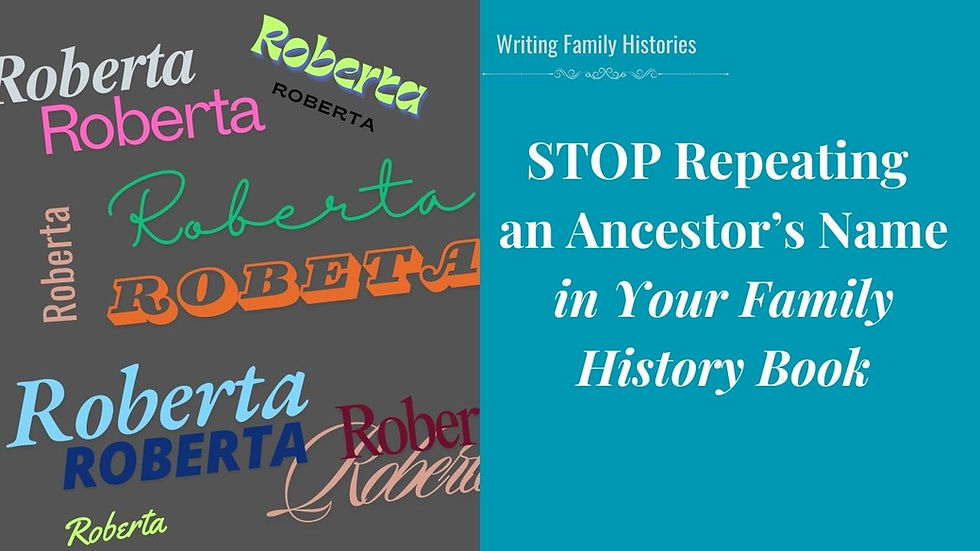Hiring the Right Editor for Your Family History Book With These Questions
- Devon Noel Lee

- Oct 14, 2024
- 2 min read
Updated: Nov 1, 2024
Hiring a professional editor could be a fantastic way to elevate your family history book and ensure that it’s clear, engaging, and polished. But before you hire someone, it's important to ask the right questions to find the perfect fit. Below, I'll share a few tips to get you started, but if you want all the details, be sure to watch the video linked at the end of this post.
Understand Their Editing Speed
One thing you’ll want to know upfront is how fast they read and edit. If they charge by the hour and read slowly, that could affect your budget. Ask about their typical pace and how long it usually takes them to edit projects similar to yours. This gives you a better idea of what to expect and helps you budget accurately.
Ask About Their Experience with Family History
Some editors focus on grammar and syntax, while others help with structure or tone. Be clear about what you need. Do you want an editor who will just fix mistakes, or do you want someone to ask questions and help clarify points that might not make sense to a general audience? For example, if you're using terminology or jargon specific to your family’s story, you’ll want an editor who’s comfortable asking, “What exactly does this mean?”
↪️ Do you want to write a family history book?
Grab your copy of this FREE Writing Guide:
Clarify What Kind of Feedback You Want
One of the best ways to write with compassion is to be neutral. State the facts as they are—no judgment, no bias. For example, if an ancestor had multiple marriages, don’t frame it as “failed marriages,” but rather as “they were married three times.” This neutral tone helps avoid judgment and allows readers to form their own opinions.
Even in situations where the truth is painful—like abandonment, abuse, or addiction—it's important to remain objective. You don’t know all the circumstances, and it’s not your place to cast blame. Instead, present what you’ve uncovered factually: “He left the family in 1885 and remarried in 1887.”
Check out my full video for all my tips and suggestions.
Let’s Discuss Hiring an Editor
In the full video, I share additional questions you should ask before hiring an editor, including how to negotiate their rates and what to do if they lack experience in family history writing. Check it out to learn everything you need to make your book shine!
But honestly, before spending money on an editor, try these editing tips. You might save money doing some of the editing yourself.
More Family History Writing Inspiration

If you’d like to watch this video and catch more tips, head to my YouTube channel, Write Your Family History. The videos are brief but packed with information that’ll help you grow your family history research without feeling overwhelmed.
.png)





Comments